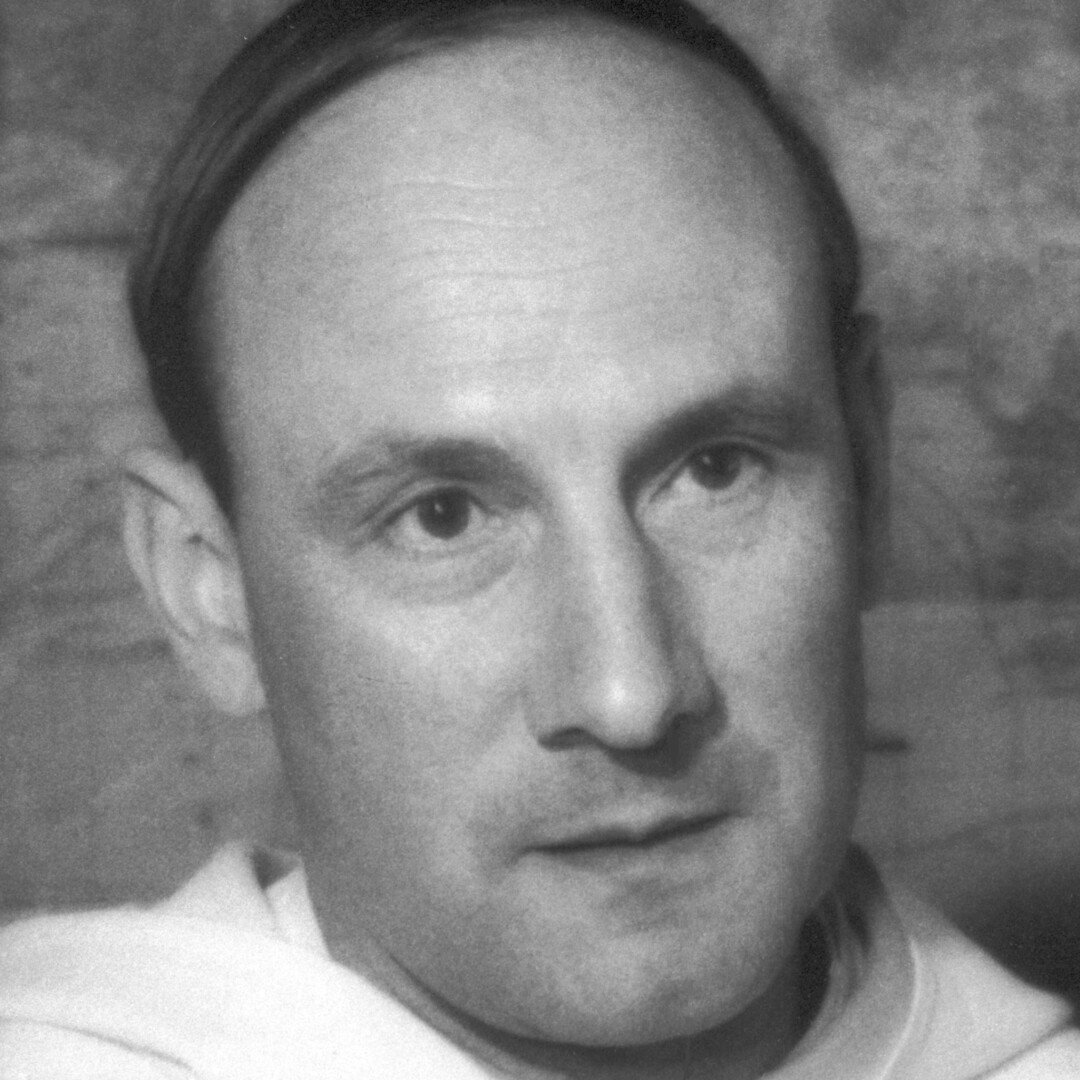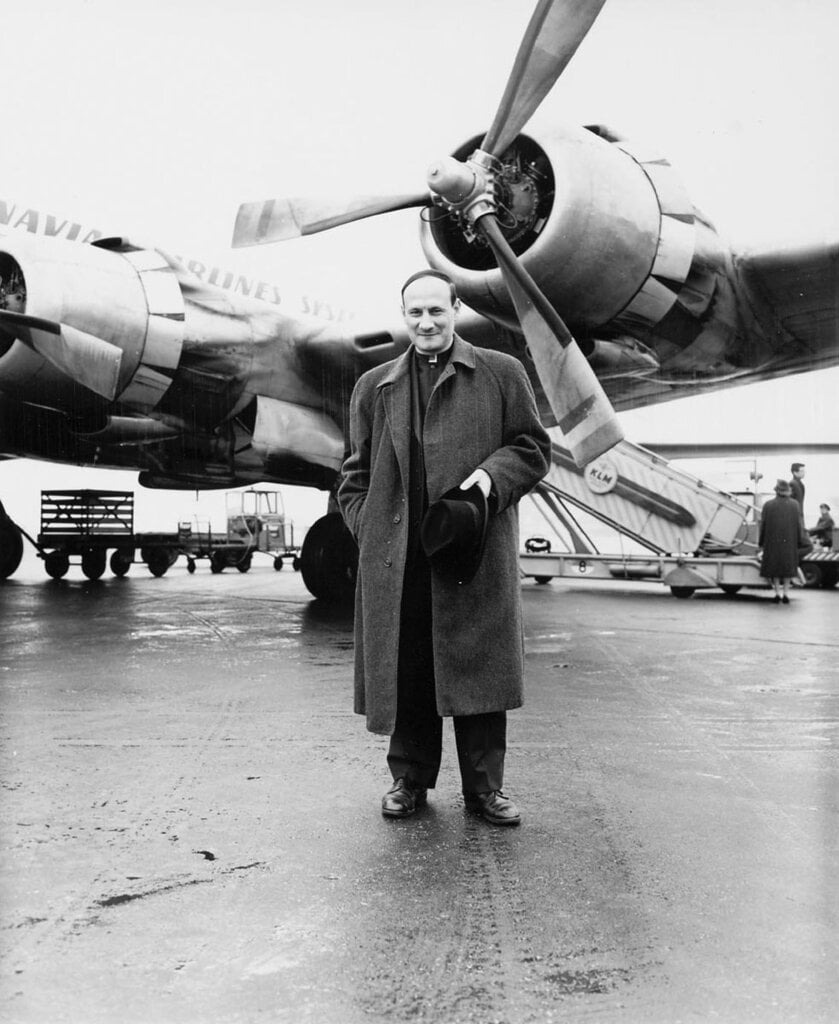Georges Pire
Speed read
Georges Pire was awarded the Nobel Peace Prize for his efforts to help refugees return to a life of freedom and dignity in the wake of World War II.

Full name: Georges Charles Clement Ghislain Pire
Born: 10 February 1910, Dinant, Belgium
Died: 30 January 1969, Leuven, Belgium
Date awarded: 10 November 1958
Humanist and european idealist
In the late 1930s, Reverend Father Georges Pire, a Dominican priest, founded a relief organisation for poor families, thus devoting his life to humanitarian activities. In the 1950s, Pire conducted an extensive relief effort for refugees from Eastern Europe. He organised a network of sponsors who provided food, clothing and medicine, and he managed amass sufficient donations to build several homes for the elderly. He also founded several “European villages” providing small-scale housing for refugees. In 1957 he established an organisation that conducted development projects throughout the world. Pire sought to serve the ideal of European community through humanitarian work. He was also lauded for having built a “bridge of light and love high above the waves of colonialism, anti-colonialism and racial strife.”
"Father Pire appeals to all that is best in the West European, exhorting him to promote the feeling of brotherhood among men and asking him to face his responsibilities to the inhabitants of the rest of the world."
Gunnar Jahn, Presentation Speech, 10 December 1958.
Lecture that spurred Pire to action
In February 1949, Georges Pire heard a lecture on the plight of refugees in Austria. He learned that orphaned children as well as the sick, elderly and disabled were living under abject conditions, left to an uncertain fate. Pire was deeply moved by what he heard and decided to travel immediately to Austria to find out what he could do to help the weakest among them. Overwhelmed by impressions from his trip, he decided to establish an organisation that would provide relief aid to refugees.
"The sacred union existing between two brother human beings who rediscover themselves as men of true dignity while working together to save a third, rids us of many of the barriers of prejudice, narrow-mindedness, and discrimination that poison human love and sap its strength."
Father Pire, Nobel Lecture, 11 December 1958.

Fraternal dialogue and development cooperation
After receiving the Nobel Peace Prize, Pire focused his efforts on more globally oriented activities. In 1960 he spearheaded the creation of a Belgian peace university, which arranged summer courses to encourage “fraternal dialogue” between peoples from different cultures throughout the world. In the 1960s, Pire devoted most of his energies to two development programmes in Pakistan and India. Called “peace islands,” the projects promoted local cooperation between villages to improve health and nutrition conditions with assistance from Western experts.
"The Peace Prize has become a means of amplifying the force of example, which is precisely its purpose – more in this day than ever before."
Norwegian newspaper Adresseavisen, 12 November 1958.
Learn more
Georges Charles Clement Ghislain Pire, born in Dinant, Belgium, the first child of Georges and Berthe (Ravet) Pire, assigned his life to action in striving to achieve understanding among peoples of the world, to eliminate poverty and hopelessness in the emerging nations, to alleviate the lot of the refugees of the post-World War II period ...
Disclaimer: Every effort has been made by the publisher to credit organisations and individuals with regard to the supply of photographs. Please notify the publishers regarding corrections.
Nobel Prizes and laureates
Six prizes were awarded for achievements that have conferred the greatest benefit to humankind. The 12 laureates' work and discoveries range from proteins' structures and machine learning to fighting for a world free of nuclear weapons.
See them all presented here.
